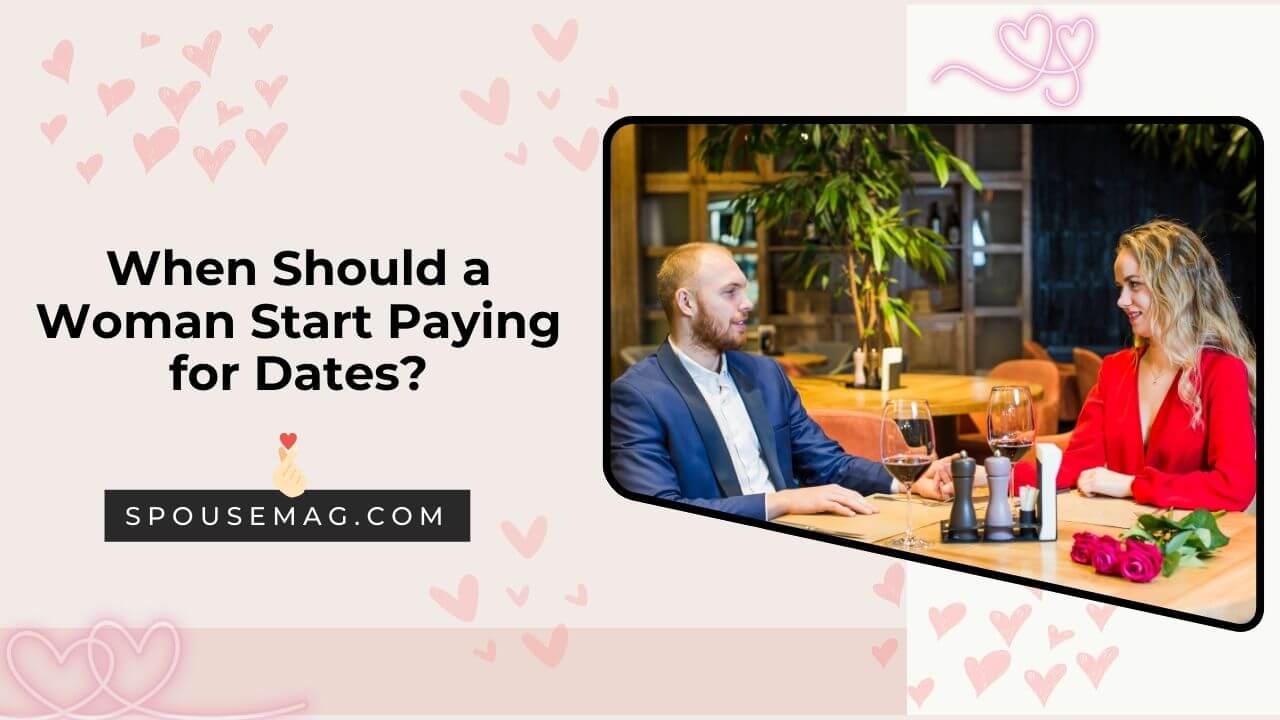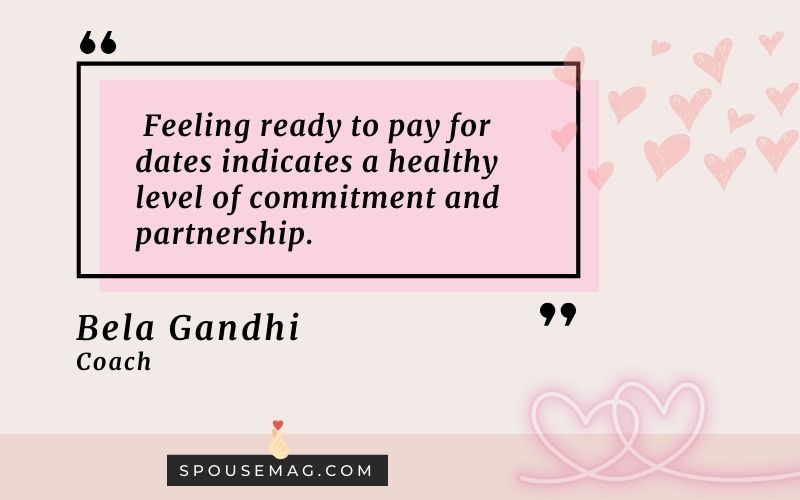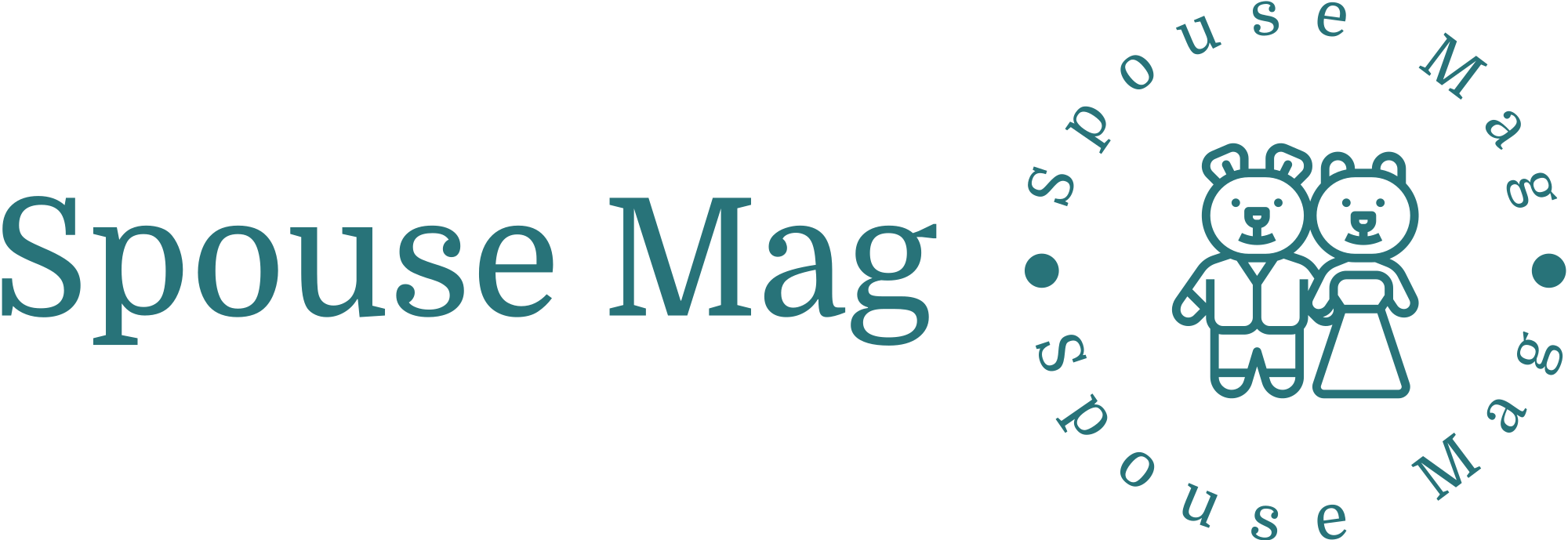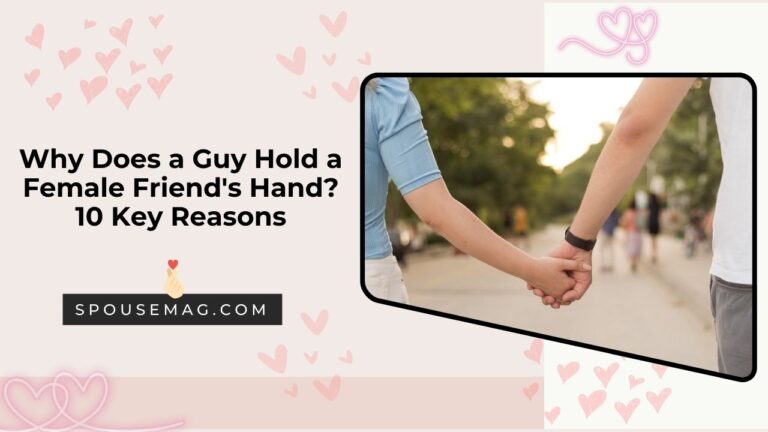
A woman should consider paying for dates once the relationship has reached a point where financial equality and shared responsibility are important.
This shift typically occurs when relationships have become more serious, the frequency of dates has increased, and both partners have developed mutual trust and understanding.
Quiz: When Should a Woman Start Paying for Dates?
When Is It Time for Women to Contribute?
To gain a clearer picture of when women should start contributing to dating expenses, we surveyed 500 participants, including 250 men and 250 women.
64% of Women and 68% of Men feel it’s appropriate for women to start paying for dates when the relationship progresses beyond the initial dating phase.
58% of Women and 62% of Men agree that when dating becomes more frequent, sharing costs becomes practical.
The Traditional View
Historically, it was customary for men to take the financial lead on dates. This stemmed from societal expectations of men as providers. Women, on the other hand, were expected to be delicate creatures who could barely open a jar of pickles, let alone their wallets.
The Modern Perspective
Fast forward to today, where women are conquering the world, one glass ceiling at a time. We’re doctors, lawyers, CEOs, and yes, even capable of paying for our sushi. The rise of feminism has ushered in an era of financial independence for women, and with it, a shift in expectations.
These days, dating isn’t just about impressing each other with financial strength. It’s about shared experiences and mutual respect.
Signs it may be Time for a Woman to Start Paying for Dates
Here are some signs that it might be time for a woman to start contributing to the cost of dates:
1. Increasing Frequency of Dates
If you’re seeing each other more often than your favorite Netflix series, it is time to start sharing the financial load. The increase in the number of dates reflects a deeper commitment and connection. When the relationship is moving from casual to serious, the way you handle expenses needs to evolve as well.
In my experience, when my partner and I started seeing each other more often, the expenses started to become noticeable. It became clear that sharing the financial load was not just practical but necessary.
2. Comfort and Readiness
Feeling comfortable and ready to contribute financially is important in deciding when to pay for dates. If you’re in a position where you’re comfortable covering some of the costs and willing to do so, it’s a natural progression to start sharing expenses.

3. Mutual Trust and Understanding
If you laugh about your impulse buys and your budgeting fails, you’re probably ready to chat about splitting the bill.
When both partners have confidence in each other’s intentions and feelings, it creates a supportive environment for discussing and sharing financial responsibilities. In my own experience, knowing that we both have each other’s best interests at heart made these conversations smoother and less stressful
4. Frequent Financial Imbalance
If one partner consistently shoulders the cost of dates, it creates an imbalance that leads to feelings of discomfort and financial strain
Time to switch things up and grab the bill before his wallet cries for mercy. Sharing the cost keeps things balanced and adds a bit of fun to the routine.
5. Special Occasions
He planned an elaborate surprise for your birthday, including your favorite restaurant and a thoughtful gift. On the next date, surprise him by saying, “This one’s on me.” Not only will it show your appreciation, but it also sets a precedent for mutual generosity.
How Often Should a Woman Pay for Dinner?
The frequency depends entirely on the couple’s agreement and comfort level. I’ve found that alternating who picks up the tab or splitting the bill evenly makes for a more relaxed and enjoyable experience.
On special occasions, like anniversaries or birthdays, I’ve learned that it’s a nice touch for one person to treat the other, making those moments feel extra special.
And let’s not forget, discussing who pays can save you from the awkward “who’s reaching for their wallet?”
Benefits of Sharing Costs on Dates
Sharing costs on dates isn’t just about splitting the bill; it’s a reflection of modern relationships and offers a host of benefits:
1. Promotes Equality in the Relationship
Sharing costs shows that both partners value and respect each other’s contributions. It’s like saying, “Hey, we’re in this together,” but with a credit card swipe instead of a dramatic movie speech.
When my boyfriend and I started splitting our date expenses, it felt like a small but significant step towards building a balanced partnership.
2. Reduces Financial Stress
Dating can get expensive, and nothing kills romance faster than financial stress. Splitting the bill alleviates some of this burden, allowing both partners to enjoy their time together without worrying about money.
Emily, 31, NewYork shared, “When my boyfriend and I started alternating who pays, it took a lot of the pressure off and made our dates more enjoyable.”
3. Encourages Open Communication
By discussing how to handle dating expenses, couples develop better communication skills that benefit them in other areas. I remember the first time my partner and I had the “money talk.” It was awkward, but it opened the door to more honest conversations about our future.
4. Builds Financial Responsibility
Sharing costs helps both partners develop better financial habits. It’s like a mini training ground for future financial planning, teaching you to budget and manage expenses together.
Plus, it’s a great way to avoid the dreaded “I thought you were paying” argument.
5. Encourages More Frequent Dates
When both partners are contributing, dating becomes more affordable, allowing you to go out more often.
After my boyfriend and I started sharing costs, we found ourselves exploring new restaurants and activities without worrying about breaking the bank.
Conclusion
So, when should a woman start paying for dates? The short answer is: whenever she wants. The long answer is: it depends.
Whether you’re old-school, new-school, or somewhere in between, the most important thing is open communication and mutual respect. It’s about finding what works best for you and your partner, without feeling pressured or obligated.
So, focus on building a strong foundation of trust, equality, and understanding. And if you’re lucky enough to find someone who makes your heart sing and your wallet a little lighter, then maybe it’s worth splitting the bill after all.

As a married wife, founder, and editor of SpouseMag.com – these guides are based on my own personal experiences, observations, research and insights. I am transparent about being inspired by the life and work of the two greatest experts in the relationship space – Dr. John and Julia Gottman, and Harville and Helen. They two are some of the strongest couples, researchers, authors, and counselors when it comes to marriage and relationships. My advice and guides are based on my insights and research, and they are not an alternative to professional advice.






